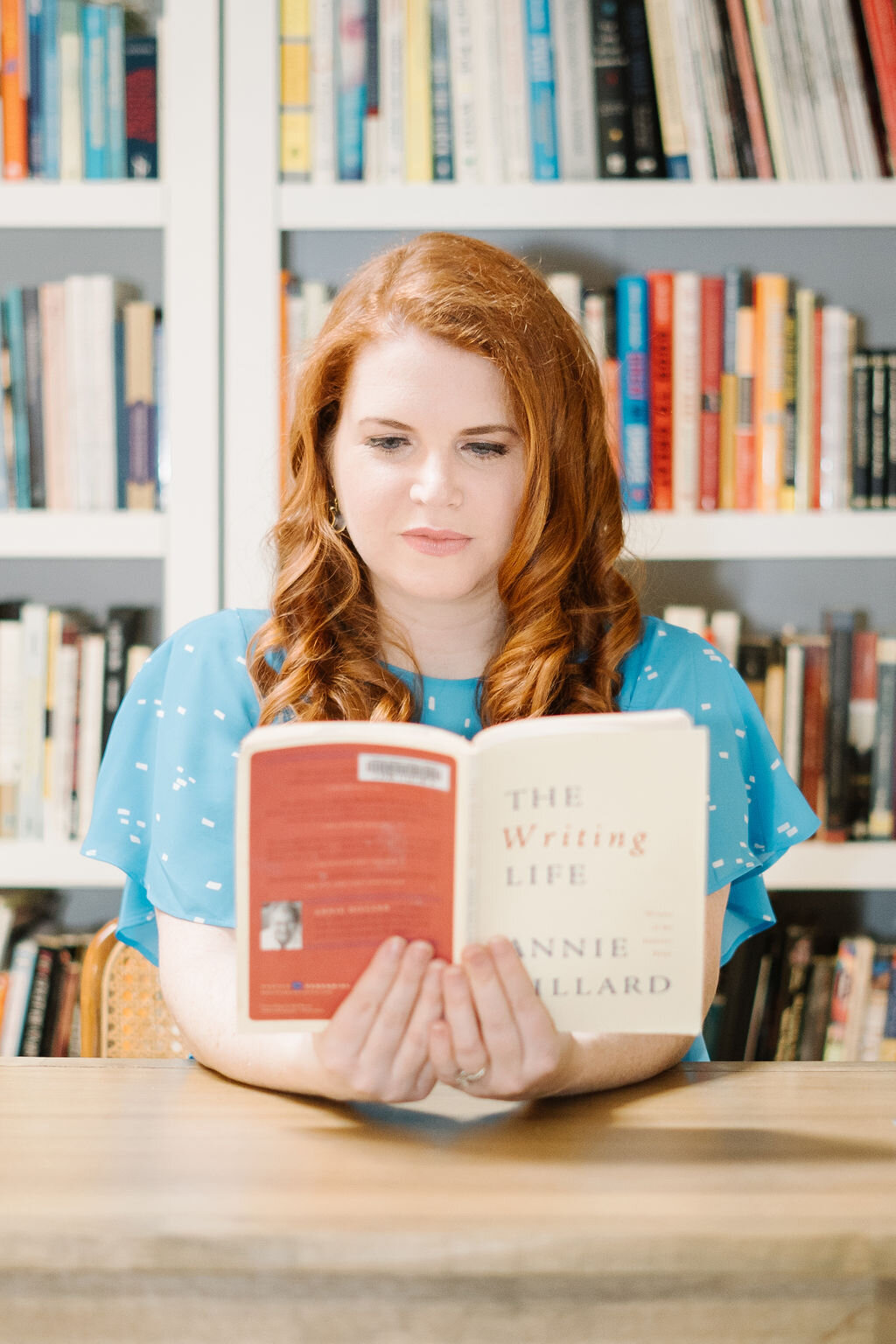My Top 10 Books of the 2010s
/I’m still not quite done looking back on the last decade…
…(after all, who among us noticed the decade was coming to a close until approximately December 27?) So today I want to share the books that made the biggest impact on me from 2010-2019.
These aren’t necessarily books that were published between 2010-2019, but they were books that I read during the period from my mid-twenties to my mid-thirties (a pretty pivotal period of life.)
All the books that meant the most to me settle into two categories: “Creativity and Work” and “Personal Development.” I picked five for each. And yep, they’re all nonfiction. (I know, I know…) Goal for the next decade: diversify.
My Top 10 Books of the 2010s
Creativity and Work
The Artist’s Way by Julia Cameron
I loved the 12-week study on rediscovering creativity. This should be standard fare for anyone in a creative field or who enjoys creative hobbies. I read this in a reading group with several other people. I highly recommend doing it that way.
Creativity, Inc. by Ed Catmull
This is a fascinating look into the brilliance of how Pixar Animation is run. I stole the “personal board of directors” concept from this book and still use it today.
4-Hour Work Week by Tim Ferris
This book has made the biggest impact on how I approach my career of any book I’ve read. Batching tasks, outsourcing, and minimum effective dose are all concepts that I learned in this book that I use every single week.
Big Magic by Elizabeth Gilbert
This book taught me not to take talent, success, recognition, and creativity so seriously. If you love something, do it for the joy of it. Don’t put expectations on it. I loved this book so much I even wrote a blog post about it and made a pretty printable discussion question guide.
The Creative Habit by Twyla Tharp
The connections Tharp draws between routine and creativity transformed my perspective on what it means to be creative. Don’t expect inspiration to simply strike. Habits and discipline lead to creativity.
Personal Development
Atomic Habits by James Clear
This book transformed my perspective on goals and habits. Tiny changes can have a mammoth impact. This is a book I will re-read.
Essentialism by Greg McKeown
This is one of the most challenging books I’ve ever read because I tend to be a person who likes a smorgasbord of options. But this book encourages its reader to ruthlessly pare down so you can accomplish what’s truly most important.
Digital Minimalism by Cal Newport
I read this one along with its predecessor, Deep Work, just last year. Newport gives some incredible food for thought on what’s wrong with our culture’s passive relationship with technology.
The Wisdom of the Enneagram by Riso & Hudson
This deep resource on the Enneagram had a profound impact on me. I wrote about what I learned about the Enneagram, anxiety, and gratitude here.
168 Hours by Laura Vanderkam
“You have more time than you think.” This book re-shaped my way of looking at my calendar, scheduling, and time. If it weren’t for this book I wouldn’t be able to do what I do and be as present for Eloise as I am. (Thank you Laura.)
These are the ten books I read in the last decade that impacted my approach to career and life the most. I also read a lot of memoirs and these two were my favorites: Booked: Literature in the Soul of Me by Dr. Karen Swallow Prior and Born Standing Up by Steve Martin.
What books did you read in the last decade that were transformative? I’d love to hear.


